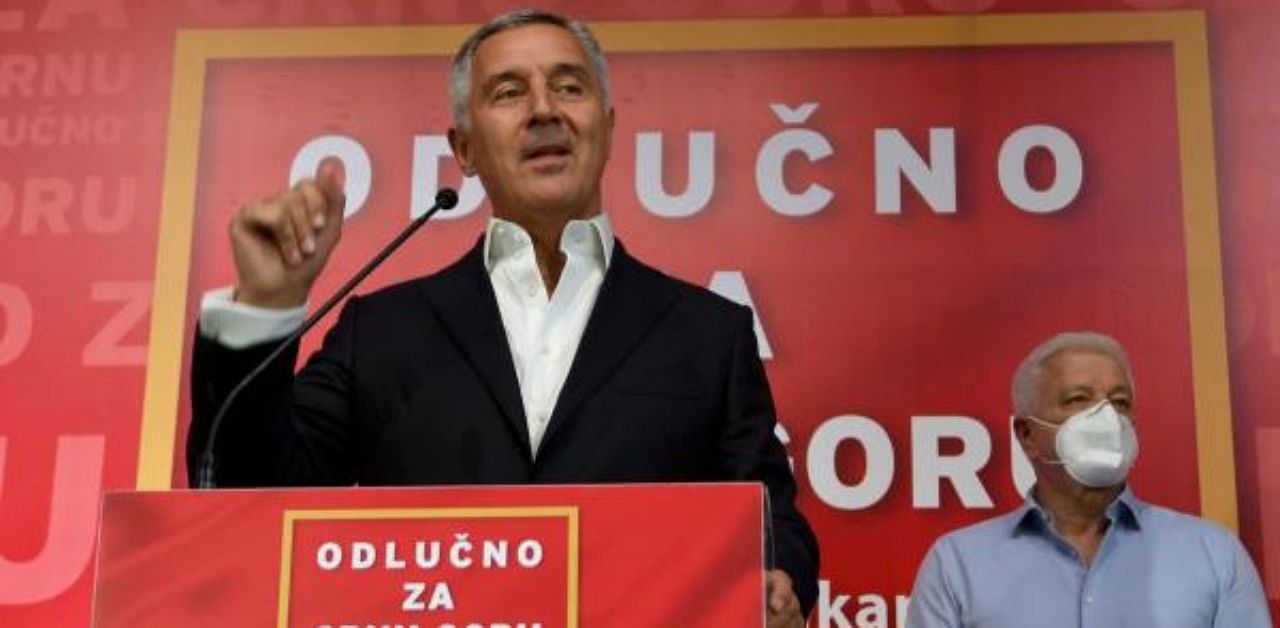
Montenegro's ruling party was projected to hold a narrow lead after a tight election, but could be knocked from power for the first time in three decades if opposition camps unite, unofficial results suggested Sunday.
Exit polls put the Democratic Party of Socialists (DPS) led by President Milo Djukanovic in line for a little over a third of the vote share, which would be its worst electoral showing since independence.
The pro-West party was set to hold 30 seats in the 81-member assembly, followed by 27 for the pro-Serb opposition "For the Future of Montenegro" alliance, according to partial results from election monitor CeMI.
If the opposition joined forces with two other leading blocs, they could oust DPS in what would be a political earthquake for the small Adriatic nation of 6,20,000 people.
The DPS has never lost an election, having led Montenegro since the collapse of Yugoslavia in the 1990s to independence from Serbia in 2006, and more recently into NATO.
But this year they faced a stiff challenge from an emboldened right-wing and pro-Serb camp that wants closer links with Belgrade and Moscow.
"DPS is at an all-time low," Milka Tadic Mijovic, director of Center for Investigative journalism (CIN), said as the results trickled in.
She attributed the weak showing to the party's "violation of basic democratic principles" as well as the passing of a law that sparked intense controversy with the influential Serbian Orthodox Church (SPC).
Passed in late 2019, the religion law paved the way for hundreds of SPC-run monasteries in Montenegro to become state property.
It ignited huge anti-government protests, led by priests and backed by the pro-Serb opposition who accuse Djukanovic of trying to steal Serb heritage.
While Montenegro declared independence from Serbia in 2006, the SPC remains its largest religious institution and a third of the country's population identify as Serb.
Speaking at the party's headquarters, President Djukanovic called for the country to wait until official results were announced, expected Monday.
"DPS is the strongest party in Montenegro," he said, insisting that the party could have a total of 40 seats with traditional allies and that the "struggle for the majority is still on."
But Zdravko Krivokapic, the leader of the main pro-Serb alliance, announced triumphantly that "the regime has fallen", while supporters celebrated in the streets of Podgorica.
Leaders of the other main opposition parties were also ecstatic, with Dritan Abazovic from the liberal 'Black on White' party declaring that "Mafia will no longer rule Montenegro".
It remains to be seen if the opposition, who range from far-right Serb nationalists to a civic-minded liberal camp, can forge a working alliance.
Djukanovic, who is now serving his second term as president after four stints as premier, is chief of the DPS party. He will not face election himself until 2023.
While he has won plaudits for making Montenegro a front-runner in the Balkans on its path to joining the EU, Djukanovic's critics accuse him turning Montenegro into a personal fiefdom built on graft and crime links.
The US-based Freedom House rights group recently downgraded Montenegro from a democracy to a "hybrid regime" under Djukanovic's "strongman" rule.
During the last parliamentary poll in 2016, authorities claimed to have foiled a coup plot -- allegedly with Russian help -- aimed at preventing Montenegro from joining NATO.
Among the 20 arrested, mostly ethnic Serbs, were two opposition leaders later sentenced to five years in prison, which they are appealing.